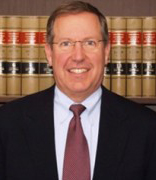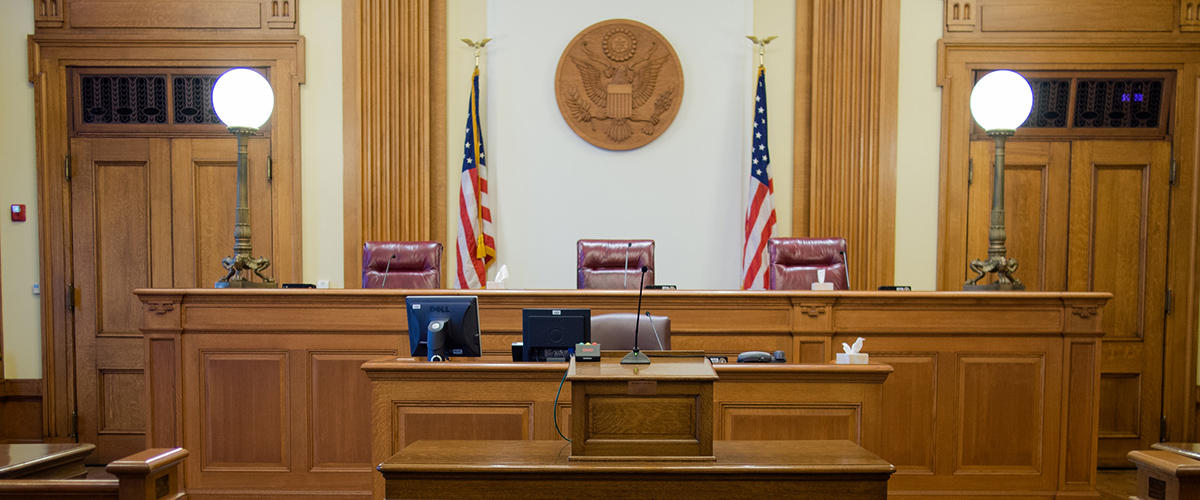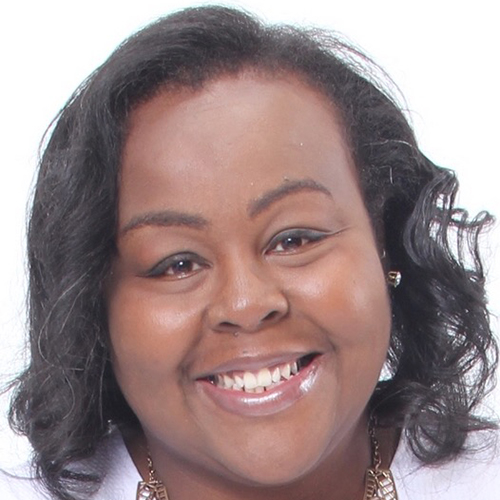Defense Counsel Interagency Collaboration Prosecutors March 13, 2017
Criminal justice reform has become a priority on both sides of the political aisle and within our communities as America’s over-reliance on incarceration and racialized patterns of injustice are brought into sharper focus. Designing meaningful reform that will create lasting change requires participation and collaboration from all justice system stakeholders, even—and especially—those that are more used to approaching one another in an adversarial capacity.
Cornerstone Magazine—a publication of the National Legal Aid & Defender Association (NLADA)—spoke to leaders from two “Strategic Allies” of the Safety and Justice Challenge: David LaBahn, President and CEO of the Association of Prosecuting Attorneys (APA), and Jo-Ann Wallace, President and CEO of NLADA.
While defenders and prosecutors may have opposing perspectives in the courtroom, we often have many common goals when it comes to criminal justice reform. What would you say are a few of the most important shared objectives?
 Jo-Ann Wallace: Almost half a million people detained each year in our country’s jails have never been found guilty of a crime. Many pose no real flight risk or danger to community. The starting point for shared objectives are eliminating the unnecessary use of jails and racial disparities in the justice system. I believe a shared desire for fair justice systems is motivating both defenders and prosecutors to pursue better solutions.
Jo-Ann Wallace: Almost half a million people detained each year in our country’s jails have never been found guilty of a crime. Many pose no real flight risk or danger to community. The starting point for shared objectives are eliminating the unnecessary use of jails and racial disparities in the justice system. I believe a shared desire for fair justice systems is motivating both defenders and prosecutors to pursue better solutions.
 David LaBahn: The criminal justice system should aim to assist and rehabilitate individuals—as recidivism rates show, people in the system often don’t receive the treatment or resources they need to improve their circumstances. Having treatment alternatives to incarceration is key. Through implementation of diversion and deflection programs, defenders and prosecutors can work together to achieve the most successful results, and ultimately make our communities safer.
David LaBahn: The criminal justice system should aim to assist and rehabilitate individuals—as recidivism rates show, people in the system often don’t receive the treatment or resources they need to improve their circumstances. Having treatment alternatives to incarceration is key. Through implementation of diversion and deflection programs, defenders and prosecutors can work together to achieve the most successful results, and ultimately make our communities safer.
What are some of the challenges to collaborative advocacy between defenders and prosecutors on these issues? How can they be resolved?
DL: One of the biggest challenges is the notion that prosecutors and defense attorneys are on opposing sides, which leads to a fear of working together. However, collaborations need to take place in order to stomp out that stigma. Prosecutors and defenders agree on many issues surrounding criminal justice reform—including the fact that low-risk people can be diverted, and the importance of data—and they can work together to see positive changes that occur from these reform efforts. In order for this to take place, the parties involved also need to understand that it’s alright to agree to disagree.
JW: A public defender’s most important duty is to advocate zealously for his or her clients, and this requires having their complete confidence. Unfortunately, clients are sometimes so mistrustful of the justice system that they even view their attorney with suspicion. The perception of a close relationship with the prosecution can damage that trust even further.
Defenders can take a variety of steps to help their clients understand that collaboration on policy issues does not undermine their ability or their ethical duty to provide effective client representation.
How can defenders and prosecutors work together on the ground to make diversion programs or alternative sentencing more effective?
DL: While it is important to advocate for criminal justice reform legislation, prosecutors and defense attorneys realize that the most effective change occurs on the ground. Diversion programs are only successful if a host of multidisciplinary professionals—defenders, prosecutors, judges, probation and parole officers, mental health and substance use professionals, and community members—work together to benefit the individuals attending these programs. The success of these programs should also be measured through data, and professionals should not be afraid to change the program to best fit the needs of the individuals who are participating.
Many in the defender community believe that the justice system is broken. Do you agree, and can it be fixed with improvements to the existing system or are there some fundamental flaws that require comprehensive reform?
JW: Our criminal justice system is dealing with social problems it is not equipped to address. For example, many individuals with mental illnesses should not encounter the justice system, but should be diverted directly into the healthcare system. As a result, it is bloated like our jails and prisons, beyond the point of effectiveness in many instances and resources are stretched too thin. The overwhelming workload has created a system that is more focused on processing cases than dealing with human beings.
The MacArthur Safety and Justice Challenge teams are exploring what is driving their jail populations and working to develop strategies to reduce them, and also presents a model for a larger reassessment of how we approach social issues and the role of our criminal justice system. Until we get there, two small but significant changes would make a world of difference. First, every criminal justice stakeholder (judge, defense counsel, prosecutor, etc.) should treat clients and their families with respect and dignity. Second, these stakeholders should receive high quality training on implicit bias.
There are parts of our system that do need to be torn down and rebuilt differently. I believe it is time to eliminate cash bail systems, for example, which put liberty at a price only the wealthy can afford.
What would you like prosecutors to know about the defender community, and vice versa, and its role in making our justice system fairer and our communities safer?
DL: It is the role and the duty of the prosecutor as the “minister of justice” to ensure that we have a just system, which focuses on public safety. We recognize that the system needs improvements, and we are striving to work with all parties involved to make a difference in their communities. When prosecutors and defenders work together, they will be successful in steering individuals towards rehabilitation, and improving their circumstances.
JW: If a person feels that they have been treated fairly and with respect by the justice system, that they understand the court proceedings, and that their voice was heard during the adjudicative process, they are significantly less likely to become involved with the justice system again. Everyone in court must take some responsibility for this, but no one else in the system has the responsibilities written into their job descriptions as extensively as a client’s dedicated advocate. Competent defense counsel is vital to maintaining the faith of the client—and the public at large—in our institutions of justice.
*A version of this post originally appeared in Cornerstone Magazine


